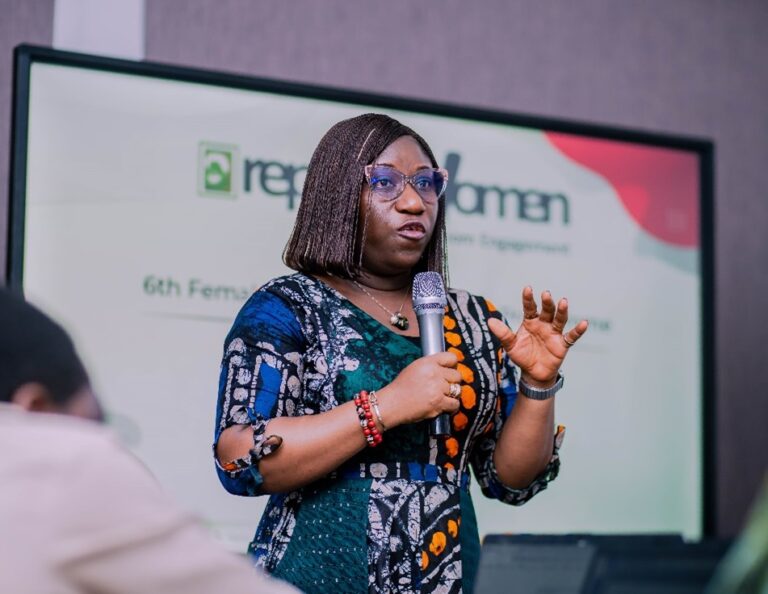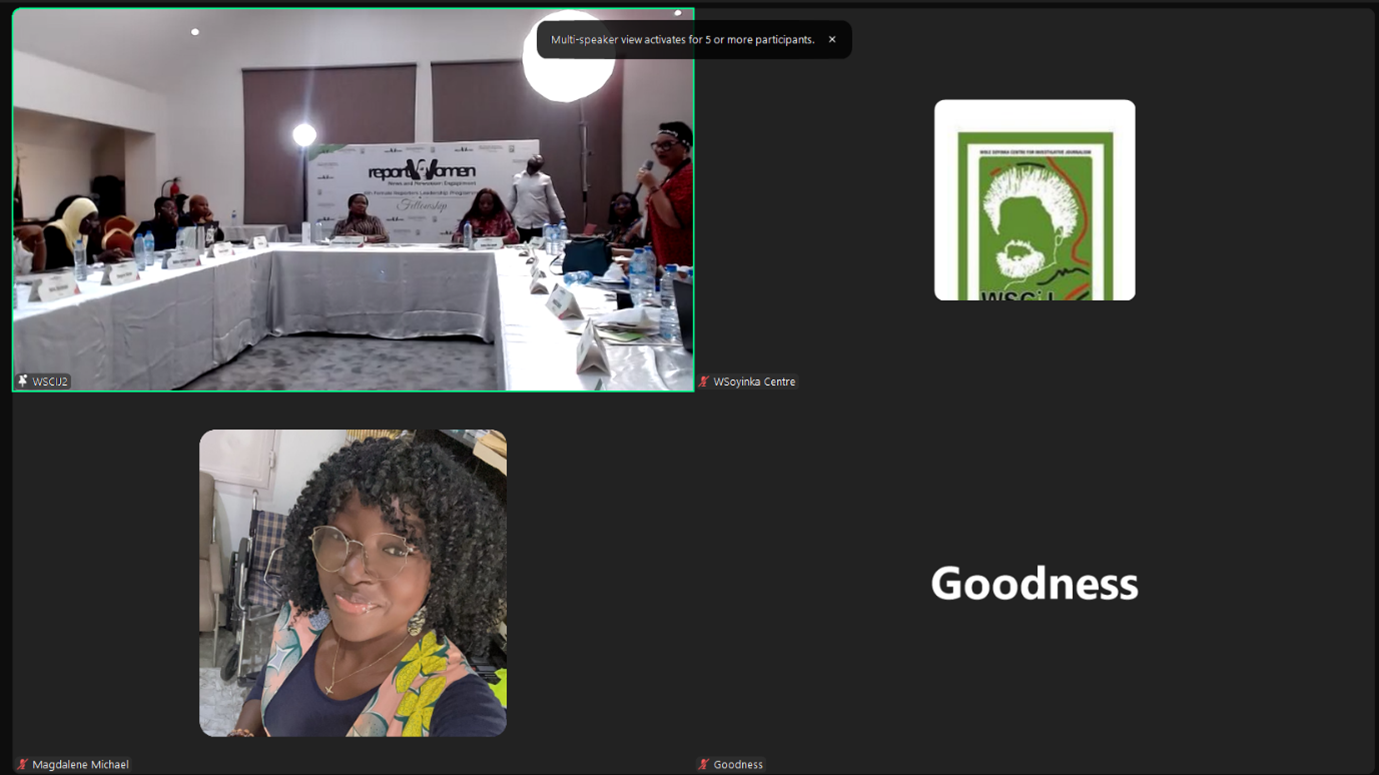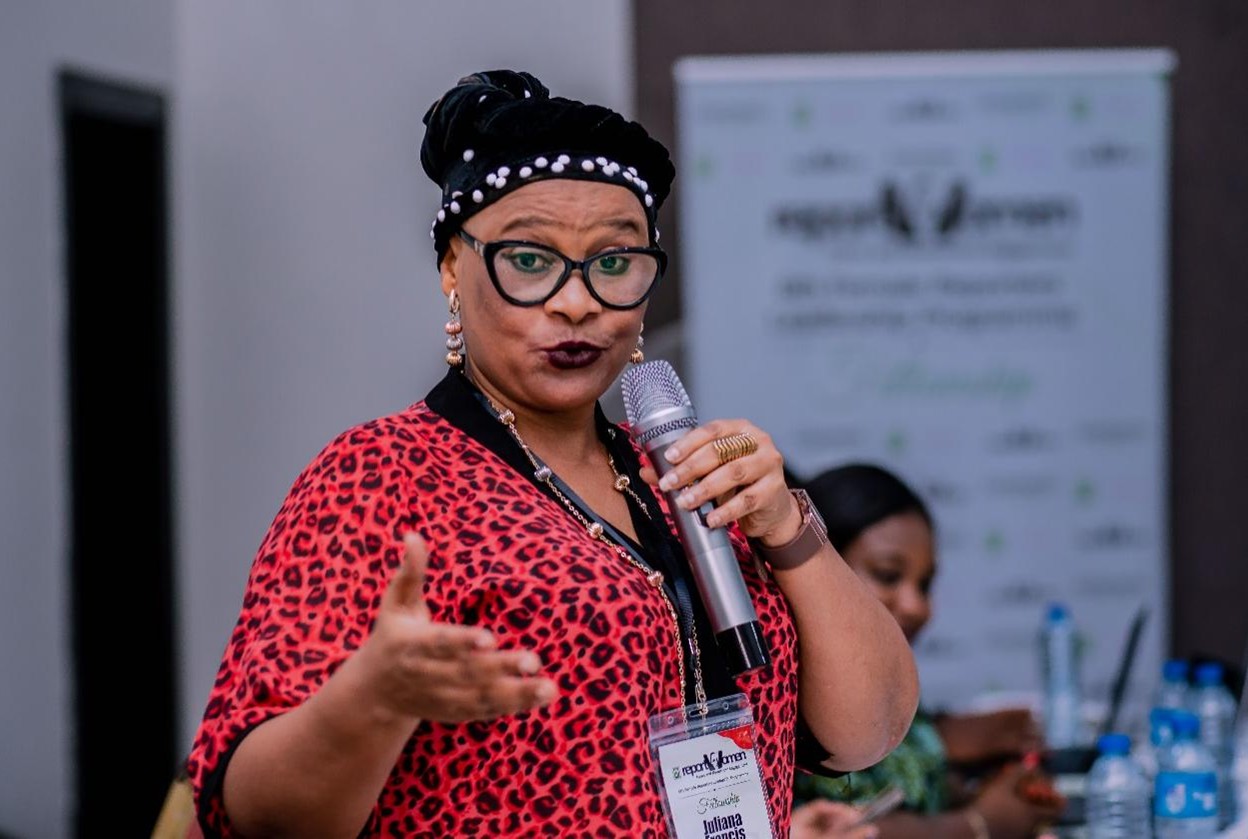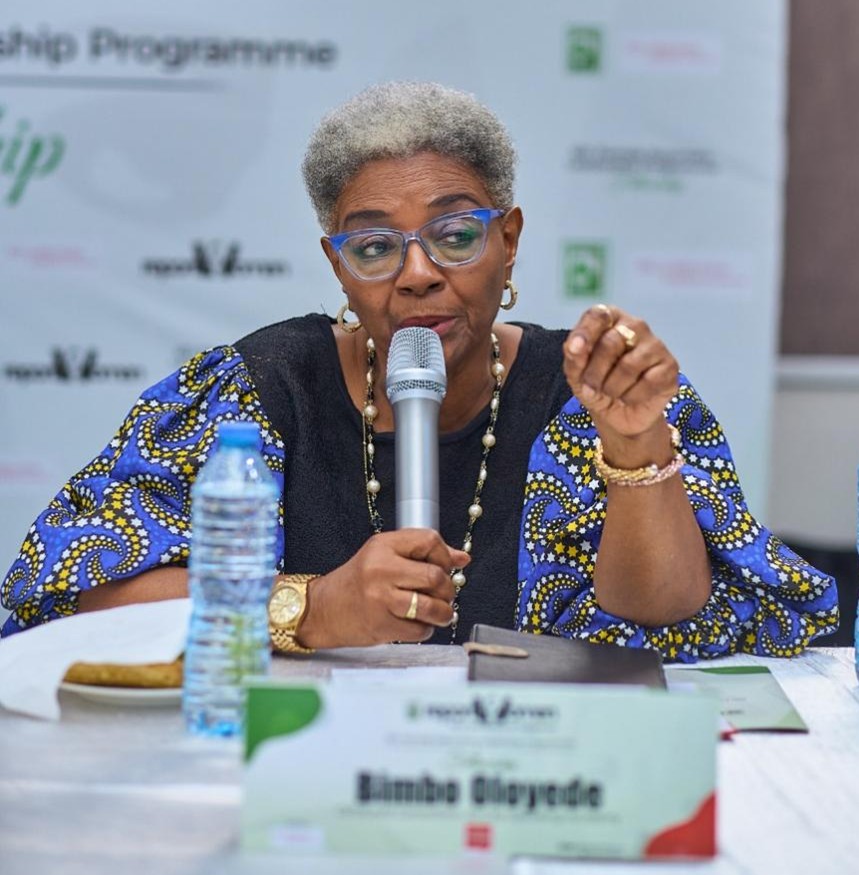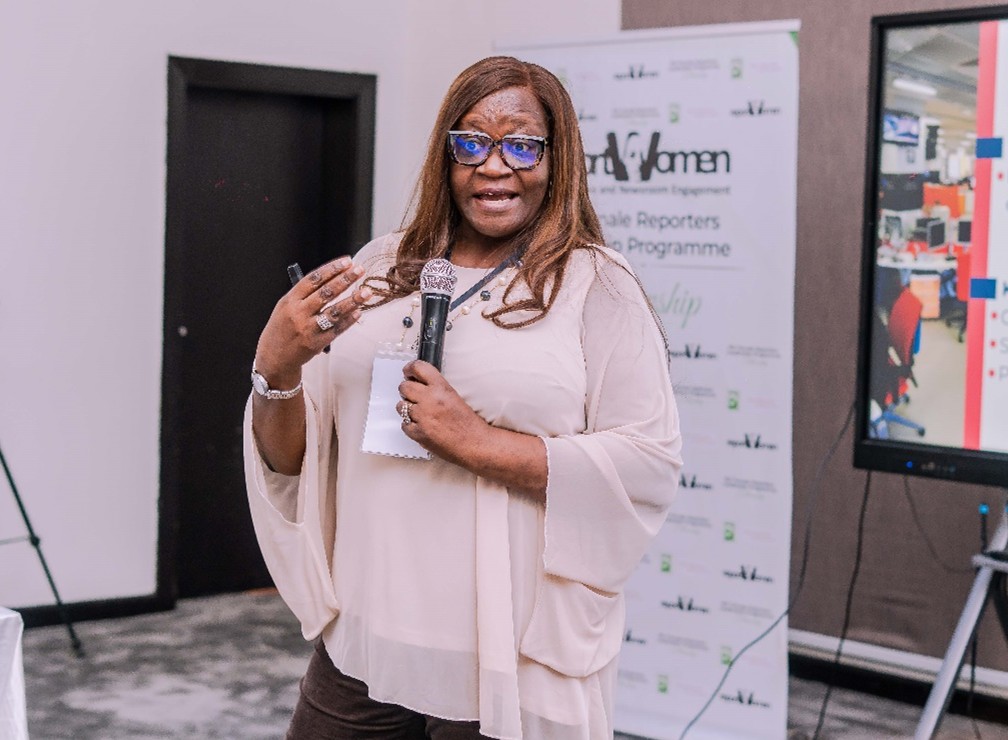Motunrayo Alaka, Executive Director/CEO, Wole Soyinka Centre for Investigative Journalism (WSCIJ), has called on female journalists to amplify women’s voices, take up leadership roles in newsrooms and adopt effective strategies for integrating career demands with personal well-being. Speaking during multiple sessions at the Report Women! Female Reporters Leadership Programme (FRLP) training, Alaka offered practical guidance on how women in the media can drive social change while sustaining their careers. Central to her message was the introduction of the “RUSH” strategy, Report Until Something Happens, a media engagement model designed to increase the visibility and impact of underreported stories, especially those centred on women and girls.
She explained that the RUSH model leverages community-based reporting, technology and intentional storytelling to extend the shelf life of stories and influence policy and social action. According to her, journalists must tap into both communities of geography (local contexts) and communities of interest (advocacy groups and policymakers) to deepen public engagement and achieve lasting impact.
Alaka also presented findings from WSCIJ’s report ‘Who leads the newsrooms and news?’ focused on gender representation in the media. The report shows that women hold just 25.7% of leadership positions in Nigerian newsrooms despite their strong presence in reporting roles, while men dominate with 74.3%. She noted that the aim is not to build a matriarchy but for balanced leadership that ensures women’s voices are heard in editorial decisions and news content.
In her session titled “Work-life effectiveness,” Alaka addressed the complex realities of being a female journalist and leader, including safety concerns, caregiving expectations and the need to constantly prove professional worth in male-dominated environments. She offered tips on time and energy management, setting boundaries and the use of digital tools to stay organised.
Alaka emphasised that self-care and mental health must be prioritised alongside professional development. She encouraged participants to cultivate support systems, identify growth opportunities that align with their values and commit to a sustainable career path that does not come at the cost of their well-being.

